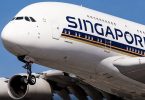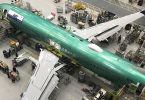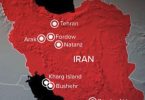Last week we took a look at a recent case, Berkson v. Gogo LLC., 2015 WL 1600755 (E.D.N.Y. 2015), wherein two airline passengers brought a class action on behalf of many airline passengers challenging the legality of Gogo’s In-Flight Wi Fi billing charges made “on an automatically-renewing continuing monthly basis without adequate notice or consent”. The Berkson complaint alleged a variety of claims, such as “[t]hree causes of actions are brought on behalf of a nationwide class-common law breach of the implied covenant of good faith and fair dealing, common law unjust enrichment and violation of various consumer protection statutes”. In this week’s article we examine another case involving Gogo, Inc., this one alleging “an unlawful monopoly” [Stewart v. Gogo, Inc., 2014 WL 324570 (N.D. Cal. 2014)(motion to dismiss second amended complaint denied); see also Stewart v. Gogo, Inc., 2013 WL 1501484 (N.D. Cal. 2013)(first amended complaint dismissed without prejudice)].
Travel Law Update
Chinese Cruise Ship Disaster
In Wong, Hundreds Missing After Chinese Cruise Ship Sinks on Yangtze, www.nytimes.com (6/1/2015) it was noted that “Most of the 458 people aboard a chartered cruise ship in China were still missing on Tuesday morning, more than a dozen hours after the vessel sank during a torrential rainstorm along the central Yangtze River…Just 13 people had been rescued, local news media reported, making this perhaps the worst passenger maritime disaster in East Asia since the sinking of the South Korean ferry Sewol last year. The water where the boat sank is about 50 feet deep. Rescuers could hear the sounds of people trapped inside…Most of the passengers were 50 to 80 years old and had been traveling on a group tour…The ship capsized, with part of the hull above the surface of the water”.
Nuts Over Nuts Again
In ‘Nut rage’ Korean Air Heiress walks free after conviction overturned, www.www.eturbonews.com (5/22/2015) it was noted that “The former Korean Air executive jailed for disrupting a flight in a rage over macadamia nuts walked free Friday when a South Korean appeals court overturned her conviction for violating aviation safety laws (for which) a lower district court…had jailed (her) for one year…’The accused had no intention of hampering the safe operation of the plane’, High Court judge Kim Sang-Hwan said, handing down a reduced sentence of 10 months…As the plane was taxing to the runway, Cho, sitting in first class, became enraged when a flight attendant served her some nuts in a bag, rather than on a plate. She lambasted the chief steward over the behavior of his cabin crew and then ordered the plane back to the gate so he could be ejected”.
Happy Baby
In Berfield, Chinese maternity tourists and the business of being born America, www.man.com/en-us/money (5/14/2015) it was noted that “Fiona He gave birth to her second child, a boy, on Jan. 24. 2015, at Pomona Valley Hospital in Southern California. The staff was friendly, the delivery uncomplicated…He, a citizen of China…arrived in November as a customer of USA Happy Baby, one of an increasing number of agencies that bring pregnant Chinese women to the States. Like most of them, Happy Baby is a deluxe service that ushers the women through the visa process and cares for them before and after delivery. There are many reasons to have a baby in the U.S. The air is cleaner, the doctors generally are better, and pain medication is dispensed more readily. Couples can evade China’s one-child policy, because they don’t have to register the birth with local authorities. The main appeal of being a ‘birth tourist’, though, is that the new born goes home with a U.S. passport…He and her husband paid Happy Baby $50,000 to have an American son. If they had to, she says, they’d have paid more”.
Cruise Ship Grounded
In Tienabeso & Shin, Norwegian Dawn Cruise Ship Aground in Bermuda, http://abcnews.go.com (5/22/2015) it was noted that “The Norwegian Dawn cruise ship with more than 3,500 people on board ran aground in Bermuda…after the vessel temporarily lost power as the ship was departing…The ship-with 2,675 passengers and 1,062 crew members-was departing King’s Wharf, Bermuda when it lost power”.
Amtrak Train Disaster
In Flegenheimer, McGeehan, Mouawad & Stolberg, Amtrak Crash Illuminates Obstacles to Plan for Controlling Train Speeds, www.nytimes.com (5/18/2015) it was noted that “Nearly seven years after Congress instructed the nation’s railroads to install an automatic speed control system by the end of 2015, the crash of a speeding Amtrak train last week has laid bare the industry hurdles, regional rivalries and often dismal economies of rail safety. Miles of track on Southern California’s commuter lines still lack the system years after 1 2008 crash that killed 25 people there, fueling the drive to install the technology, known as positive train controls. Chicago’s commuter rails are not likely to have the safety system for years, while comparatively sleepy train service on Amtrak’s Michigan line already has it…Rail safety experts have noted that far less costly upgrades, including an older braking system found on tracks opposite the site of last week’s crash in Philadelphia, would have prevented high-speed derailments like this one. And they say that even with positive rain control, not all accidents can be avoided”. See also: D’Annunzio, ‘Indescribable Horror’ of Amtrak Derailment Prompts Suits, www.law.com (5/18/2015) it was noted that “A cluster of lawsuits against Amtrak stemming from last week’s derailment that injured over 200 people and killed eight has been filed in filed in Philadelphia”.
Airline Wi-Fi
In Stewart v. Gogo, Inc. (2014) the Court noted that “Gogo, Inc. is a company that provides broadband internet access to passengers on commercial aircraft…Plaintiffs…have filed a class action against Gogo, asserting that it has violated, inter alia, federal antitrust law because it has an unlawful monopoly in the ‘market for in-flight internet access services on domestic commercial airline flights within the continental United States’. As before [2013 WL 1501484 (2013)], the critical question for purposes of resolving the instant motion (to dismiss the second amended complaint) is whether Plaintiffs’ complaint contains sufficient allegations that make an illegal exclusive dealing arrangement between Gogo and the airlines plausible”.
Market Foreclosure
“Here, Plaintiffs maintain that there is substantial market foreclosure because Gogo and a majority of the airlines providing commercial, domestic travel have entered into long-term, exclusive contracts which locked up either the airlines’ entire fleet or near entire fleet of airplanes…Plaintiffs specifically allege that Gogo possesses 85% of the relevant market share. This specific and factual allegation is backed by additional more specific factual allegations. Plaintiffs allege facts about the numbers of aircraft and airlines covered by Gogo’s exclusive dealing contracts. To support the allegations, Plaintiffs have also submitted copies of many of the contracts Gogo had with the airlines along with other evidence such as press releases, websites, etc…Accordingly, Plaintiffs have done more than assert conclusory allegations of law or ultimate facts”.
Erroneous And Incomplete
“Gogo argues that the alleged facts are erroneous and incomplete: that because Plaintiffs fail to explain the 85% figure…they have failed to allege a plausible claim for relief…These are matters appropriately left for discovery. If Gogo believes the 85% is erroneous it can seek permission to file an early motion for summary judgment and limit initial discovery accordingly…To be sure, the Court is cognizant that there may be problems with some of Plaintiffs’ allegations…Nevertheless, even if the 85% figure is not correct, Plaintiffs allege with specificity other major airlines-including American, Delta and U.S. Air-whose fleets in their entirety or near entirety are or were locked up by Gogo’s contract. Thus, it is plausible that even if not an 85% market share, Gogo has a substantial enough market share, such that, together with the allegations in Plaintiffs’ complaint that there are high barriers to entry, a substantial share of the market has been foreclosed”.
Easy To Get Out Of Contracts?
“The Court is not persuaded by Gogo’s argument that there is not substantial market foreclosure because it is relatively easy for airlines to get out of the contracts. Plaintiffs allege Gogo’s contracts with the airlines largely provide that they may not be terminated except in limited circumstances-e.g., unless the airline would suffer competitive harm from not using a competitor’s superior services. To the extent Gogo argues that agreements are in fact easy to terminate because AirTran recently terminated its agreement (and moved to competitor Row 44 after Southwest and AirTran merged)…it should be noted that, in an SEC filing, Gogo specifically stated: ‘[W]e believe that AirTran’s connectivity agreement does not permit it to deinstall our equipment from these aircraft under the circumstances’…In fact, Gogo initiated a lawsuit in Illinois state court, asking for a preliminary injunction to bar AirTran from (de)installing Gogo’s equipment in violation of their contract…While Gogo ultimately did not succeed, the fact that it took significant litigation and an attempted appeal to resolve the matter… suggests the agreements are not easily terminated. In any event…Plaintiffs have sufficiently alleged a plausible claim that the contracts are not easily terminable”.
Conclusion
“Accordingly, the Court concludes that Plaintiffs have alleged plausible antitrust claims for the purposes of Rule 12(b)(6) and denies Gogo’s motion to dismiss”. Stay tuned.
Justice Dickerson been writing about Travel Law for 39 years including his annually updated law books, Travel Law, Law Journal Press (2015) and Litigating International Torts in U.S. Courts, Thomson Reuters WestLaw (2015), and over 350 legal articles many of which are available at www.nycourts.gov/courts/9jd/taxcertatd.shtml.
This Article May Not Be Reproduced Without The Permission Of Thomas A. Dickerson
The author, Justice Dickerson, has been writing about Travel Law for 39 years including his annually updated law books, Travel Law, Law Journal Press (2015) and Litigating International Torts in U.S. Courts, Thomson Reuters WestLaw (2015), and over 350 legal articles.
This article may not be reproduced without the permission of Thomas A. Dickerson.






















